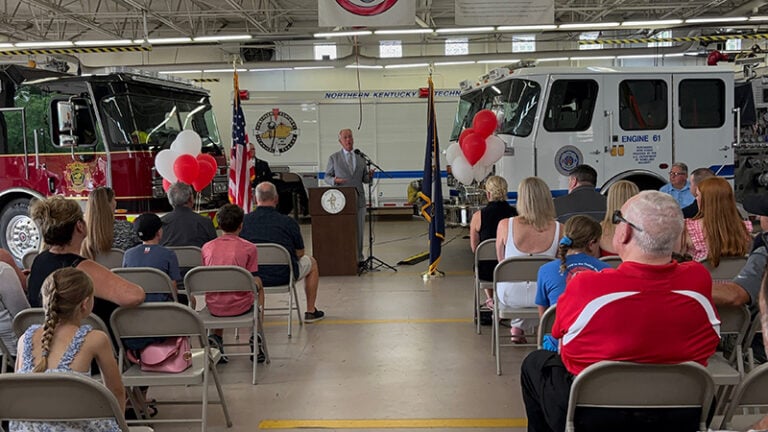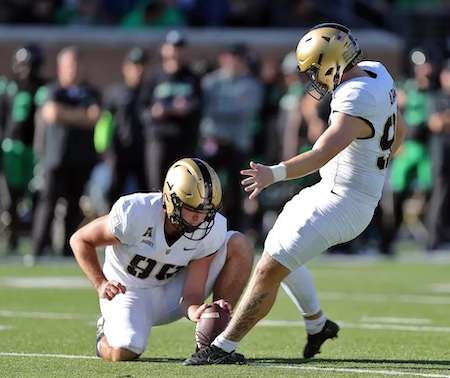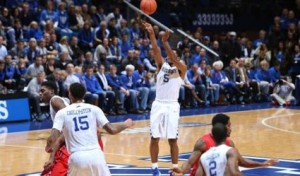By Ashley Scoby
KyForward Sports reporter
As usual, the fans’ vocal reactions at Rupp Arena represented the overall trend within the fanbase.
“Come on, Andrew!” they screamed, their hands on their faces in agony. “You’ve got to make that!”
Andrew Harrison had just missed his first free throw with 25 seconds on the clock against Mississippi last Tuesday. His team was down by one, 77-76, and he had another free throw attempt on the way. Swish. Tie game.
And Rupp Arena lost its collective mind, after teetering on the brink of its first loss in its perfect season, and now heading to overtime. Adulation for Harrison rained down from the 24,275 in attendance.
A bit of a bipolar reaction from Kentucky fans? Perhaps. But that’s become par for the course this year, especially with the point guard “situation.”
Both Harrison twins, Andrew and Aaron, dealt with fan backlash last year after not meeting the lofty expectations set upon them because of high recruiting rankings. Aaron largely erased any annoyance that Kentucky fans may have had with him, after hitting three straight game-winners during the Wildcats’ improbable NCAA tournament run to the championship game.
Andrew, however, was the twin that was always a little streakier. He didn’t hit flashy game-winning three-pointers. When he played well, as a point guard, it went largely unnoticed.
“Andrew took us to the championship game last year. Andrew did,” said Kentucky head coach John Calipari after Andrew struggled during the game against Louisville last month.
He continued, pointing out at least part of the source of Kentucky fans’ polarized feelings on the twin: “So what I have is two terrific point guards, who I can play together if I choose.”
Two point guards, he said, which means one thing for a fanbase that loves to debate seemingly every minor detail of its team: controversy. Tyler Ulis’ arrival in Lexington has simultaneously helped UK, but made Andrew’s life a little more difficult, with social media calling for Ulis to start over the sophomore.
Amid Andrew’s struggles against Louisville (1-6 shooting and six turnovers), Ulis shined (a team-leading 14 points on 5-8 shooting, and zero turnovers).
“That’s the best I’ve seen (Ulis) play since I’ve coached him,” Calipari said. “This will start the other dialogue, which is why I’m platooning.”
Calipari, of course, knows, that “dialogue” had already started about why Andrew was still starting, when Ulis had often showed an ability to dictate the pace of a game, and withstand pressure on his ball-handling.
But Harrison bounced back against Mississippi, scoring 12 points, dishing out five assists (and making only one turnover), and hitting the game-tying free throw to send the game to overtime.
“I knew he was gonna respond well,” his twin, Aaron, said. “He takes a lot of heat for everything and he always responds well. He’s my brother and I knew how he was gonna react.”
Andrew now has a solid game under his belt on a night where Ulis struggled, flip-flopping the dialogue after the Louisville game. Calipari admitted that Ulis had a hard time defensively, because Mississippi was targeting him for his size.
Now what?
R-E-L-A-X, as Green Bay quarterback Aaron Rodgers said after his Packers started the season 1-2.
Players have bad games every day. But only when they play the same position does it really become an issue (especially point guard). Kentucky is lucky enough to have two point guards as talented as they are – and who have such diverse skillsets.
At 6-foot-6, Harrison is stronger when slashing to the basket and a better rebounder because of his size. But Ulis’ size (5-foot-9) can also be a benefit because of his scrappy, in-your-face defense.
Ulis has been a better three-point shooter (44 percent compared to Harrison’s 36 percent), but Harrison scores more points a game (7.6) than Ulis (5.5).
Ulis has a better assist to turnover ratio (3.7) than Harrison’s (2.0), but Harrison plays more minutes a game.
Each point guard has his ups and downs, as any basketball player does. When one is off, the other is on. And it’s nice to almost always have an “on” point guard.
But both would surely benefit from less up-and-down support from the rabid fanbase.

Ashley Scoby is a senior journalism major at the University of Kentucky and sports writer for KyForward.com. She has reported on the Wildcats for wildcathoops.com, vaughtsviews.com and kysportsreport.com as well as for newspapers in Danville and Glasgow. She will join Sports Illustrated magazine as a summer intern in June.


















